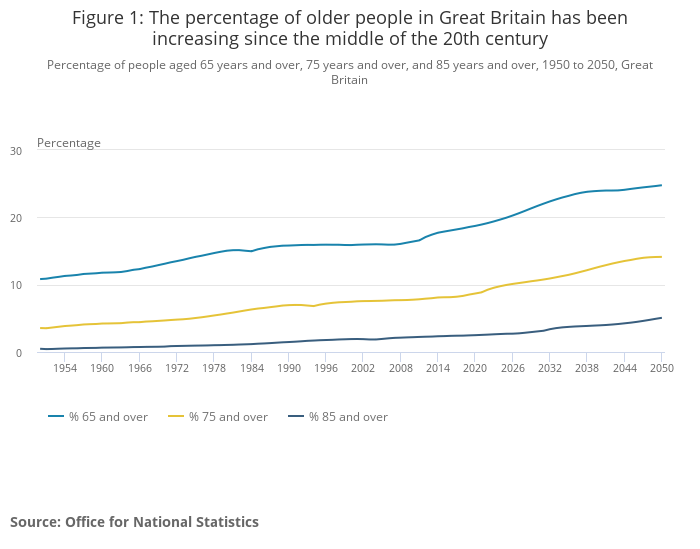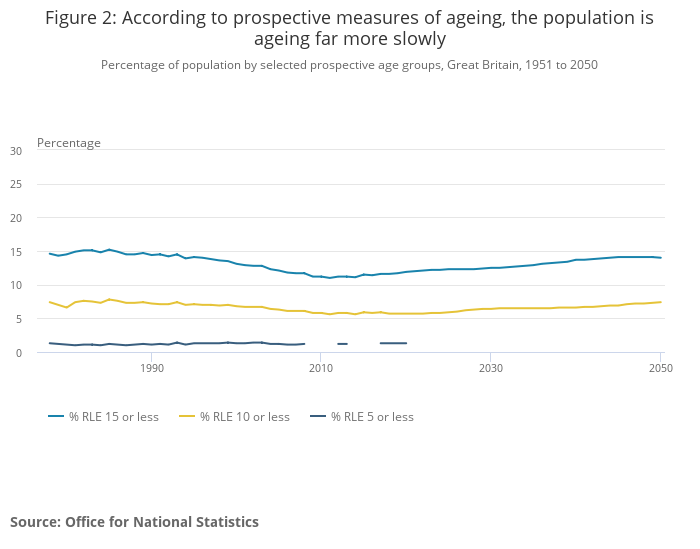
70 is the new 65: a new way of looking at population ageing
A new analysis by the UK Office for National Statistics shows that estimating the number of life years remaining, rather than counting the years lived, could be a better way of measuring ageing and its implications for society.

What is population ageing?
The UK population, like other developed countries, has an ageing population, meaning that its proportion of older people is increasing. This is due to the combined effects of people having fewer children and living longer. Population ageing has long caused concern among governments due to its potential dampening effects on economic growth and increased strain on public services such as healthcare. However, these concerns are often exaggerated and the tremendous benefits of population stabilisation are usually ignored.
Chronological vs prospective age
The proportion of UK citizens aged 65 and over has increased from one in ten people in 1950 to almost one in five today. By 2050, this is expected to increase to a quarter of the population. However, thanks to advances in modern medicine, a 65-year-old today generally has a greater fitness level than a 65-year-old in 1950. Many people already work past the current state pension age and the most cited reason is not yet feeling ready to retire. This delayed retirement trend is helping to counteract the economic effects of population ageing.
There is another way of looking at age that uses a person’s remaining life expectancy (RLE) instead of the number of years lived. A 70-year-old man today, for example, has a RLE of 15 years – the same RLE of a 65-year-old in 1997. The proportion of older people in the UK who are expected to live another 5 or less, 10 or less, or 15 or less years has not increased as much as the proportion of people aged 65 and over, 75 and over, and 85 and over. In other words, the population is ageing more slowly when measured in prospective age, rather than chronological age.


Changing views on ageing
Prospective age may help overturn some of the negative views on population ageing. Older people also make key contributions to society, such as through volunteering and caring for grandchildren. Previous studies have shown that fears of population ageing are usually unfounded – people living in ageing societies generally do better economically, socially, and environmentally than people in fast-growing countries with a high proportion of young dependents.
It is time for policymakers to embrace population ageing as a stepping stone towards a better future for people and planet. Greater investment in preventive healthcare and ensuring senior citizens have their needs met will ease this necessary transition.

